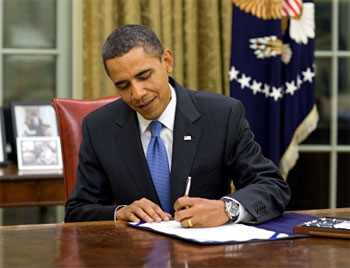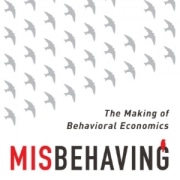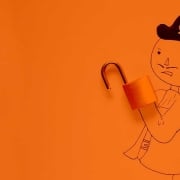An Executive Order Promoting Behavioral Science
 As we have long said, behavioral sciences are the key to unlocking better decision making, from study halls to the halls of power. This week, the White House echoed our view via an Executive Order outlining that behavioral insights be used to better serve the American people. What began as a nudge, is now a full-on push.
As we have long said, behavioral sciences are the key to unlocking better decision making, from study halls to the halls of power. This week, the White House echoed our view via an Executive Order outlining that behavioral insights be used to better serve the American people. What began as a nudge, is now a full-on push.
Obama’s order directed Executive departments and agencies to identify and develop strategies for improvements to policies, programs and operations based on the lessons of behavioral science, citing the benefits of integrating these lessons: “Where Federal policies have been designed to reflect behavioral science insights, they have substantially improved outcomes for the individuals, families, communities, and businesses those policies serve.”
Ethical Systems praises this initiative as a major step towards not only making behavioral science more widespread but also in advancing the incorporation of ethical system design in business. When businesses adopt these systems, research shows their employees are happier, more productive and, as a result, the business is more profitable.
For regulators, the Executive Order is an opportunity to consider the practical application of academic theories that can improve business ethics- though this is no easy task.
One relevant study worthy of note is a paper written by Ann Tenbrunsel (an Ethical Systems collaborator) and David Messick on “Sanctioning Systems, Decision Frames, and Cooperation.” They tested the propensity for cooperation when there is a threat of a sanction, such as financial penalties or monitoring. Their studies revealed that the existence of a sanction can sometimes reduce ethical decision-making. The system, they hypothesized, shapes an individual’s perception of an ethical choice of whether to cooperate with colleagues into a rational calculation of how to avert penalties and achieve rewards. They determined that the existence of a sanction changed the individual’s mindset to a business frame where the choice about cooperation became a calculative exercise.
Businesses and governments that want to ensure cooperative and ethical behavior should take note — sanctioning and monitoring employees may backfire. Perhaps this is a theory that is ripe for testing in a business environment.
As the Executive Order is carried out, we will see more evidence of behavioral science at work leading, hopefully, to a greater implementation in halls, offices and classrooms across America.
Further Reading:
- Why the US Government is embracing behavioral science (article by ES collaborator Francesca Gino)
- Learn more about drawing conclusions from test environments
- Explore research and resources around ethical decision-making









